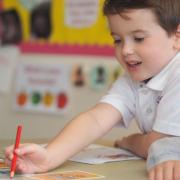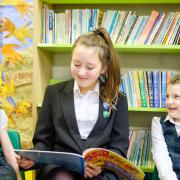With schools closed and exams cancelled, there are many ways you can help children to continue learning
If school’s out for your child because of coronavirus, how can you ensure they get the education they need at home? A good place to start is ensuring a suitable working environment. “Set up a desk in a quiet corner of the house where your child can keep their laptop, textbooks and notes,” advises Nicola Anderson, customer support head at UK-based tutoring platform MyTutor (also noting you should ensure your child has the necessary equipment).
You’ll likely have information from your child’s school about the work they should be doing, so stick to this. Nicola says you should “help your child set up a timetable that’ll work for them and covers the subjects they need,” with study periods divided up with active breaks. “Make sure your child moves, goes outside (if possible), eats meals at the appropriate times and has offline conversations,” she says.
“Set up a structure with daily goals to achieve and reward your child when the goals are reached to keep them motivated,” is the advice from UK-based tutoring platform Tutor House. “It is beneficial to try to mimic the child’s school day as much as possible. Aim for a 15-minute snack break mid-morning and a good 45-minute to an hour lunchbreak in the afternoon.” Phones should be set to one side when kids are studying and TVs turned off throughout the day.
Nicola Anderson says you are likely to come across times when your child doesn’t understand course content and you can’t help. Here, having resources prepared is a wise move (S-cool and Save My Exams are two handy websites). “Don’t be afraid to reach out to friends, family, colleagues or the school,” the Tutor House team adds, advising using the internet as a rich source of information. If attention in your home classroom begins to flag, the organisation suggests trying a different activity to engage children, such as colouring books, puzzles or board games. (The British Psychological Society’s Division of Educational and Child Psychology (DECP) notes that play is fundamental to the development and wellbeing of children of all ages.) Nicola adds that an online tutor can keep students on track with syllabuses and help fill in knowledge gaps.
The DECP advises that stress and anxiety in such a strange and unpredictable situation is normal, but that routine and structure help children feel secure in uncertain times.
Rolling news coverage access should be restricted, and your child should be reassured that it is the adults’ job to keep them safe. You should also help them maintain friendships through phone calls, online communication and letters (although Nicola warns that when social media fuels feelings of isolation and anxiety, it is negative for your child’s mental health).
As for young people with cancelled exams, DECP members advised parents and carers in March to tell them the Prime Minister has said they will get the qualifications they have worked for.
Above all, assure your child everything will work out in the end. Grades might be uncertain, but it’s health and happiness that are the most important things.




























